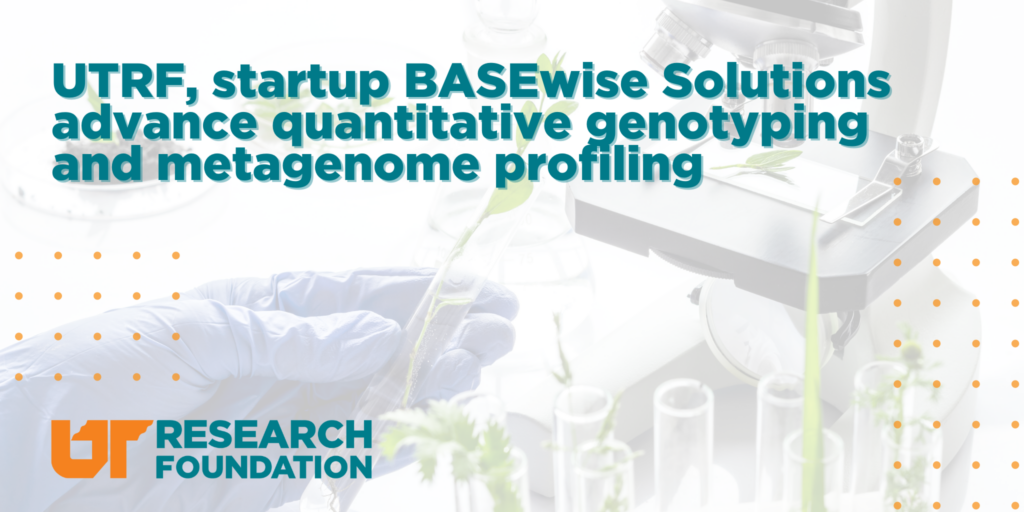Bode Olukolu is an assistant professor in the Department of Entomology and Plant Pathology at the University of Tennessee, Knoxville, who co-founded a startup, BASEwise Solutions, to bring to market his technology, OmeSeq-qRRS, a next-generation sequencing (NGS)-based reduced representation sequencing (RRS) platform for genotyping and metagenome profiling.

Unlike other approaches, Olukolu’s technology only sequences a small fraction of the genome, making it cost-effective, scalable and robust. Initially developed for genotyping the complex and polyploid genomes of sweet potato plants, Olukolu has been able to apply it to other organisms and metagenome sequencing.

Olukolu began working on the technology as a research assistant professor at North Carolina State University (NCSU) and in collaboration with Dr. Craig Yencho. After arriving at the UT Institute of Agriculture in 2018, the platform took off, leading to a collaboration between the UT Research Foundation, NCSU’s Office of Research Commercialization and BASEwise Solutions. BASEwise Solutions recently licensed the technology to work toward commercialization.
It came to a point where I felt like I needed to push this technology to the market,” said Olukolu. “I felt this was something the community needed.”
His novel library preparation approach seeks to alleviate the challenges and shortcomings of current NGS-based RRS methods, including high cost, lengthy turnaround times and material requirements.
Metagenomic sequencing is effective but expensive. For instance, if you have 20,000 microbes, you will need to sequence the complete genomes of those 20,000 microbes, which is expensive and computationally time-consuming to analyze,” said Olukolu. “Sequencing technology is getting cheaper, but it’s still costly for some applications.”
“We might not be able to tell you how genes or microbes affect specific attributes, but we can use genomic data and computational algorithms to predict the outcomes of physical attributes,” said Olukolu. “Inexpensive quantitative sequencing of informative regions of genomes is making this easier to achieve. Quantitative in that we’re not just sequencing to see what’s there but to know how many copies of the genes and/or microbes are there. Essentially, you’re doing less and still getting the same information.”
Currently, Olukolu is focused on the ends and outs of the commercialization process, including improving existing workflows and processes. In addition to the intellectual property collaboration between UTRF, NCSU, and BASEwise Solutions, the startup is collaborating with NCSU’s Genomic Sciences Laboratory and seeking other partnership opportunities.
UTRF is proud to partner with other universities and license technology to startups to get innovative platforms like OmeSeq-qRRS out into the world to those who can harness its applications and benefits,” said UTRF Vice President Kusum Rathore. “Strategic collaboration between universities and private-sector partners is vital in advancing innovations out of labs and into the market, to solve unique industrial problems.”